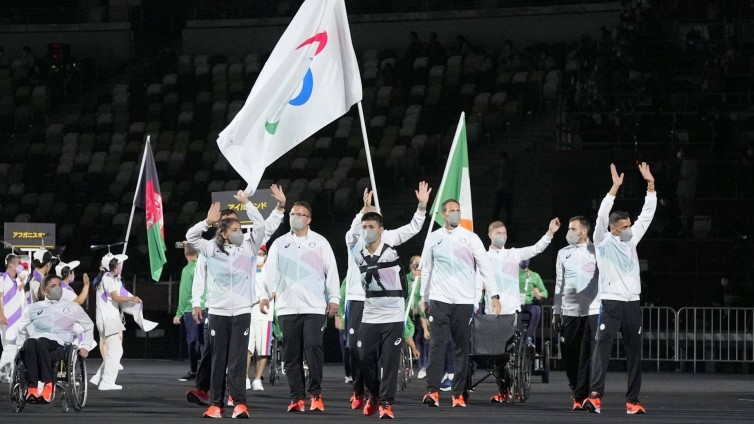“First of all, it’s about inclusion. If there’s a refugee team for the Olympics, why not also for the Paralympics? We need to be fully visible. We need equality.”
This is the discus thrower and shot putter Shahrad Nasjpur. Without the focus of the 31-year-old Iranian, there would be no refugee team at today’s Paralympics. He himself fled his country to the United States in 2015. After several emails from Nasajpour to the International Paralympic Committee, two “independent athletes” entered the race for the first time in 2016 at the Paralympics in Rio, one of them Shahrad Nasajpour.
The refugee team offers pride and willpower
At the Tokyo Olympics, which has just begun, for the first time there is a refugee team with this name officially. Six athletes from Afghanistan, Burundi, Iran and Syria belong to the delegation. Shahrad Nasjpur says they are proud of them. You don’t just represent twelve million refugees with disabilities around the world:
“Of course we are competing for all the refugees in the world. And we want to show that we are good people. We have to fight for our place because sometimes there are no structures for us. But then you shouldn’t just accept the rejection, you should keep fighting.” Then you can get what you want.”
These are words in line with what the Paralympic Games want to say in their competitions: no task is too big for people of strong will.
Lack of openness to asylum seekers in Japan
Although this is a particularly important message in host country Japan – especially when it comes to refugees. There is hardly a country in the world that gives asylum seekers the cold shoulder so clearly. Last year, Japan took in 47 refugees, and only 1.2 percent of applications were accepted. Germany welcomed more than a thousand times the number of people in 2020.
True, Japan also signed the 1951 Geneva Refugee Convention, under which the country pledged to grant asylum to persecuted people. However, authorities often argue that asylum seekers cannot provide sufficient documentation. However, this problem is also found in other places – usually more relevant than in Japan.
The refugee team must have a lasting impact
The six-person refugee team in Tokyo counts the number of people Japan received as refugees in the whole of 2013. So the athletes are in a country that will most likely never accept their asylum application. How do you feel? Shahrad Nasajpur wants to think about the future:
“I hope that the privilege of this refugee team and the privilege of the Olympics that we can be here will also have a legacy. I hope our appearance helps change some mindsets and raise awareness.”

“Tv expert. Hardcore creator. Extreme music fan. Lifelong twitter geek. Certified travel enthusiast. Baconaholic. Pop culture nerd. Reader. Freelance student.”







More Stories
Space in City Hall has become more expensive
7 tips on how to learn to deal with your fears
“The kind of stone we were hoping to find.”